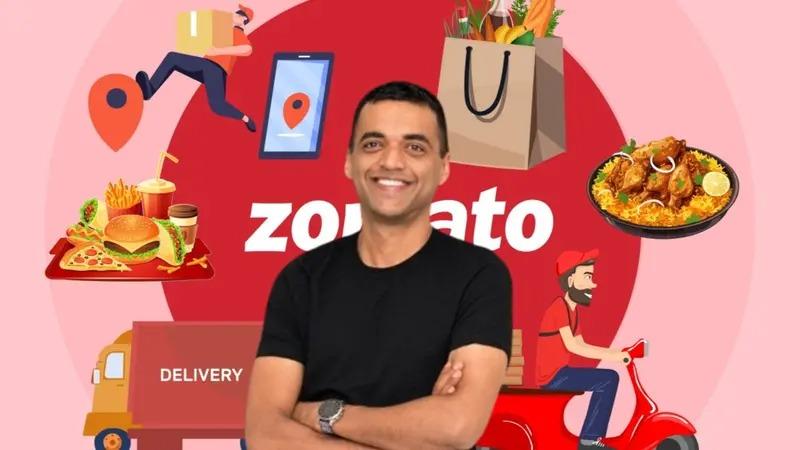Published 13:10 IST, December 9th 2024
Investor Questions Zomato About Sustainability, CEO Deepinder Goyal Responds - See Post
Zomato CEO Deepinder Goyal addressed allegations of greenwashing by sharing audited data and sustainability reports.

Zomato CEO Deepinder Goyal has publicly defended the company’s sustainability practices after a user named Rajesh Sawhney on X(formerly Twitter) questioned its environmental impact on social media. Sawhney, addressing Zomato’s claims of “100% green deliveries” and plastic recycling efforts, demanded an audited report to validate the company’s offsets and plastic-neutral initiatives.
Goyal took to the social media platform X on December 6, offering a detailed four-point response, including data from Zomato’s ESG Factsheets and partnerships with authorized waste management agencies.
Goyal emphasized Zomato’s efforts to maintain carbon-neutral food deliveries over the past three financial years. “Our international renewable energy certificates (IREC) for Scope 2 emissions and carbon offset purchases for Scope 1 and Scope 3 emissions have been verified by our ESG assurance providers for three years in a row,” he stated.
Citing publicly available ESG Factsheets, Goyal highlighted that these purchases offset Zomato's entire delivery-related carbon footprint. The reports can be accessed on pages 36, 22, and 47 of the FY24, FY23, and FY22 ESG updates, respectively.
Plastic Recycling and Sustainability Initiatives
Addressing plastic usage, Goyal pointed to Zomato’s plastic-neutral delivery program initiated in FY23. Collaborating with the Indian Pollution Control Association (IPCA), the company recycled over 30,000 metric tons (MT) of plastic waste—approximately 1.5 times the estimated waste generated from deliveries.
“We run multiple programs to encourage restaurant partners to adopt sustainable packaging options,” Goyal added, noting that these efforts are voluntary since packaging decisions are made by restaurants.
EV-Based Deliveries and Net Zero Goal
Goyal reiterated Zomato’s commitment to achieving 100% electric vehicle (EV) deliveries by 2030, a pledge made in 2021. Currently, nearly one-third of all deliveries in Delhi are conducted using EVs.
“Today’s EV products and infrastructure still need to evolve to meet delivery partners’ needs at scale. We are actively working with policymakers, industry bodies, and ecosystem players to achieve our target,” Goyal explained.
Zomato aims to become a Net Zero company by 2033, aligning its operations with long-term sustainability goals. Additional details on the company's EV adoption initiatives can be found in its Annual Report (Page 107).
Rajesh Sawhney’s Call for Accountability
Sawhney’s original posts on December 5 and 6 criticized Zomato for potential greenwashing, accusing the platform of making “false claims to sound cool.” While acknowledging Zomato’s public stance on sustainability, he requested deeper insights into the company’s recycling and offset impacts.
Goyal countered these accusations by asserting, “There’s no greenwashing. Public companies like us cannot lie. There are enough public institutions to keep us honest and accountable.”
Updated 15:23 IST, December 9th 2024